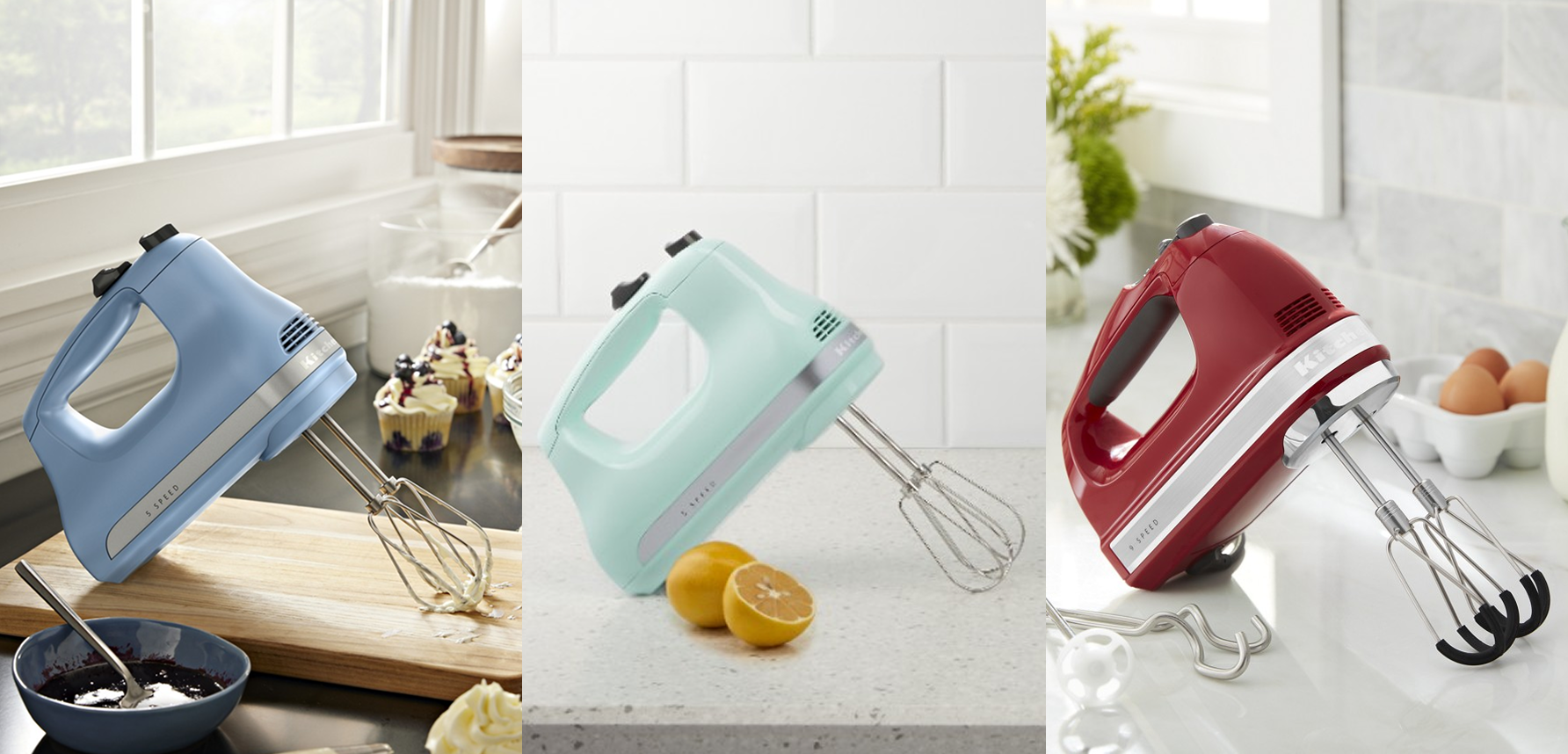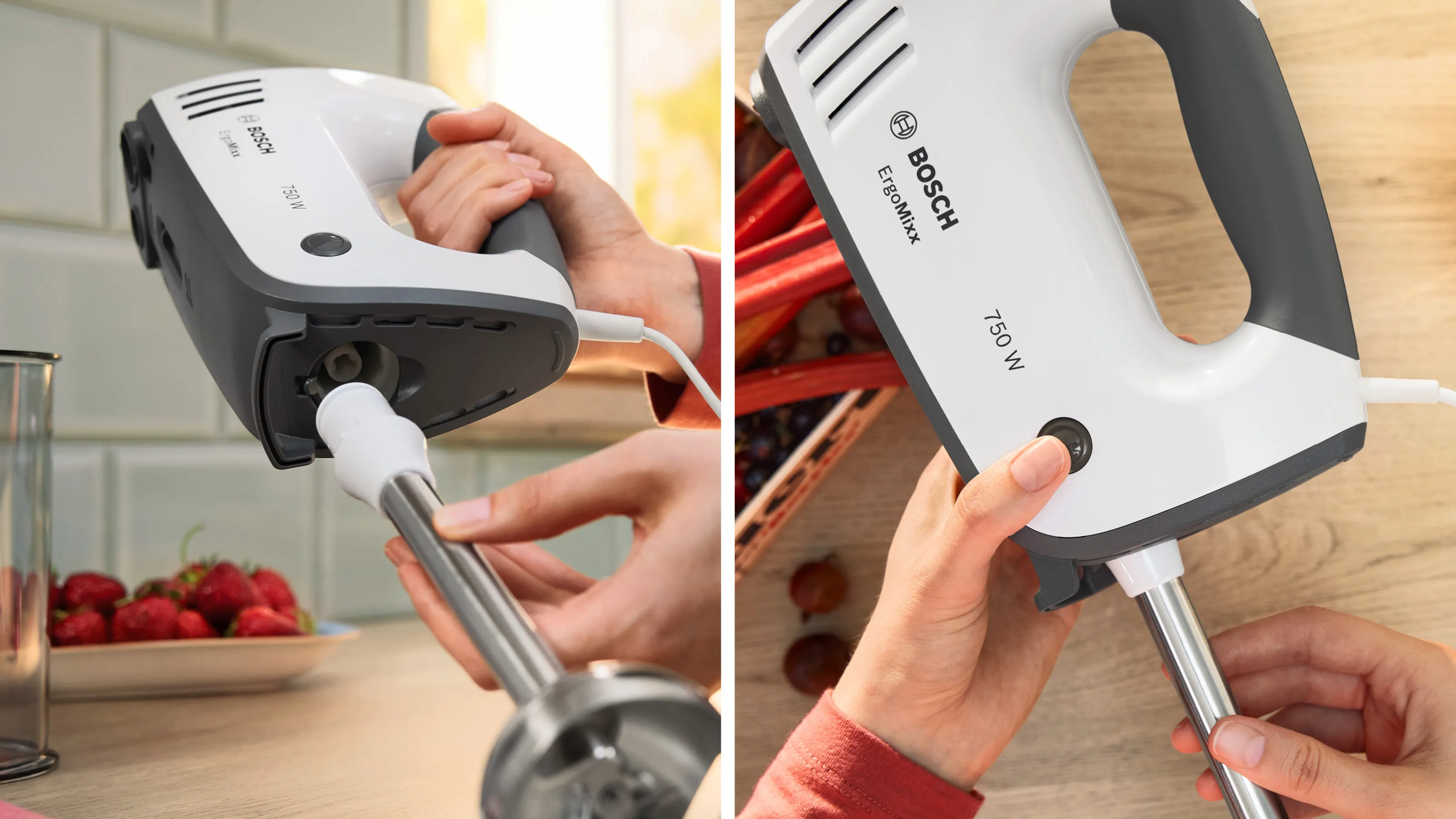You’re in the middle of whipping up a perfect meringue, dreaming of those stiff, glossy peaks. Suddenly, you notice it—that distinct, slightly worrying warmth spreading through the handle of your trusty hand mixer. You might even catch a faint, plastic-y smell. If you’ve ever found yourself wondering, “Why Is My Hand Mixer Getting Hot?“, you’re not alone. It’s a common kitchen conundrum that can throw a real wrench in your baking plans. As someone who has probably spent more time with a hand mixer than most, I can tell you that while a little warmth is normal, excessive heat is your mixer’s way of crying for help.
Don’t panic and toss your appliance just yet. Most of the time, an overheating hand mixer is a solvable problem. We’re going to dive deep into the common culprits, what you can do about it right now, and how to keep your little kitchen workhorse running smoothly for years to come.
First Things First: Is It Normal for a Hand Mixer to Get Warm?
Let’s clear this up right away. Yes, it’s completely normal for your hand mixer to get slightly warm during use. Think of it like any other motor. Whether it’s in a car or a power drill, a motor generates heat as a natural byproduct of converting electrical energy into mechanical motion. A little warmth in the housing, especially after a few minutes of solid mixing, is just a sign that it’s doing its job.
The red flag goes up when “warm” turns into “hot.” If the plastic is uncomfortable to touch, if you smell something burning, or if the mixer’s performance starts to lag, that’s when you need to pay attention. Understanding the difference is key to knowing why is my hand mixer getting hot beyond its normal operating temperature.

The 7 Main Reasons Your Hand Mixer is Overheating
When your mixer crosses the line from warm to hot, it’s usually due to one of these seven common issues. Let’s break them down, from the most frequent to the more serious.
1. You’re Overworking the Motor with a Thick Mixture
This is, without a doubt, the number one cause of an overheating hand mixer. Hand mixers are brilliant for batters, creams, and egg whites. But they have their limits. When you try to tackle a very stiff cookie dough, a dense bread dough, or cold, hard butter, you’re forcing the motor to work much harder than it was designed to.
- The Analogy: Imagine you’re trying to jog through thick mud versus on a paved track. Your body has to work exponentially harder to move through the mud, and you’ll get tired and overheat much faster. Your mixer’s motor feels the same way when battling a dense dough.
- The Fix: If you feel the motor straining or the beaters slowing down, stop immediately. Scrape down the bowl and consider if the task is better suited for a more powerful stand mixer. For stiff doughs, it’s often better to finish incorporating the last bit of flour by hand with a sturdy spatula.
2. The Air Vents are Blocked
Every hand mixer has ventilation slots to allow cool air to flow over the motor and hot air to escape. Over time, these vents can become clogged with flour dust, cocoa powder, and other airborne kitchen debris. When the vents are blocked, the heat has nowhere to go. It gets trapped inside the housing, causing the motor to overheat rapidly.
- How to Check: Unplug your mixer and hold it up to a light. Look through the vents. Can you see a layer of dust or grime inside? If so, you’ve likely found a major part of the problem.
- The Fix: Cleaning the vents is simple. Use a dry toothbrush, a small paintbrush, or a can of compressed air (the kind used for keyboards) to gently clear out the debris. For a deeper clean, you can find our full guide on how to properly clean and maintain your hand mixer.
3. You’re Mixing for Too Long Without a Break
Hand mixers are designed for short bursts of power, not for marathon mixing sessions. Whipping cream for two minutes is fine. Creaming butter and sugar for seven to ten minutes straight? That might be pushing it for some models. The motor isn’t built for continuous, prolonged use in the same way a heavy-duty stand mixer is.
“A common mistake I see home bakers make is treating their hand mixer like a stand mixer. Remember, it’s a sprinter, not a long-distance runner. Give it a short rest every few minutes during a long mixing job. Your mixer will thank you for it.” – Maria Jenkins, Pastry Chef and Kitchen Equipment Consultant
- The Rule of Thumb: For intensive tasks, try to work in 3-4 minute intervals. Give the mixer a 1-minute break to cool down before starting again. Always check your user manual, as many manufacturers provide specific guidelines on maximum continuous run time.
4. Why is My Hand Mixer Getting Hot? It Could Be Low Wattage
Not all hand mixers are created equal. A budget-friendly, 150-watt mixer is perfect for whipping egg whites but will struggle mightily with a thick batch of chocolate chip cookie dough. A higher wattage (think 250 watts and up) indicates a more powerful, robust motor that can handle tougher jobs without overheating as easily. If you frequently find your mixer getting hot, it might simply be underpowered for your baking needs.
- The Fix: Match the mixer to the job. If you’re an avid baker who loves making dense doughs and large batches, investing in a higher-wattage model is a wise choice. Check out our comprehensive guide to choosing the best hand mixer to find a model with the right power for you.
5. You’re Starting at Too High a Speed
Jamming the speed dial straight to high from a dead stop puts a sudden, intense strain on the motor. It’s like flooring the gas pedal in a car from a standstill. A much better practice is to start on the lowest speed to get the ingredients moving and then gradually increase the speed as needed. Many modern mixers even have a “soft start” feature to prevent this very issue (and the dreaded flour-cloud explosion).
6. There’s an Internal Mechanical Issue
This is less common, but it can happen, especially with older or well-used mixers. The internal gears can wear down, or the motor’s lubrication can dry up. This creates more friction, which in turn generates excess heat. If you hear any grinding, clicking, or other unusual noises accompanying the heat, it’s a strong sign of an internal problem.
- The Fix: For most hand mixers, the cost of a professional repair is often more than the cost of a new unit. Unless you have a high-end, expensive model or it’s still under warranty, it may be time to consider a replacement.
7. It’s Just an Old, Inefficient Mixer
Technology improves. The motor in a hand mixer from 20 years ago is simply not as efficient as the one in a brand-new model. Older components, natural wear and tear, and less advanced motor design can all contribute to a mixer that runs hotter and works harder than its modern counterparts.
What to Do the Moment You Notice It’s Too Hot
If you’re in the middle of a recipe and realize your hand mixer is getting uncomfortably hot, follow these steps immediately:
- Stop and Unplug: The very first step is to turn it off and unplug it from the wall. Safety first.
- Let It Cool Down: Place the mixer on a heat-proof surface and let it rest for at least 15-20 minutes. Don’t try to speed up the process by putting it in the fridge or freezer, as the sudden temperature change could damage the internal components.
- Inspect the Vents: While it’s cooling, take the opportunity to check the air vents for any blockages.
- Assess the Mixture: Is your dough or batter extremely thick? If so, you may need to finish the job by hand or switch to a more powerful appliance if you have one.
- Resume with Caution: Once it has cooled completely, you can plug it back in and resume, but be mindful. Use a lower speed if possible and take breaks.
FAQ: Your Hand Mixer Heating Questions Answered
Q: Can an overheating hand mixer start a fire?
A: While extremely rare, it is technically possible. Most modern mixers have a thermal overload protector that will shut the motor off before it reaches a dangerous temperature. However, if you smell burning plastic or see smoke, unplug it immediately and discontinue use.
Q: How long can I run my hand mixer continuously?
A: This varies by model, but a good general rule is no more than 5 minutes at a time without a short break, especially for thicker mixtures. Always check your instruction manual for the manufacturer’s specific recommendation.
Q: Does the brand of the hand mixer matter for overheating?
A: Yes, to an extent. Reputable brands often use higher-quality motors and components that are more durable and efficient, making them less prone to overheating. That said, even the best hand mixer will get hot if used improperly.
Q: My hand mixer gets hot and smells like burning plastic. What should I do?
A: A burning smell is a serious warning sign. It indicates the motor is dangerously overheating, potentially melting the insulation on its internal wiring. Unplug the unit immediately and do not use it again. It is likely time for a replacement.
Q: Can I mix bread dough with a hand mixer?
A: Generally, no. Most bread doughs are far too dense and heavy for a hand mixer’s motor. This is a job best left to a powerful stand mixer with a dough hook or the traditional method of kneading by hand.
The Takeaway: Keep Your Cool in the Kitchen
So, why is my hand mixer getting hot? As we’ve seen, it’s usually a distress signal caused by pushing the appliance beyond its limits—either with a mixture that’s too thick, a mixing time that’s too long, or vents that are too clogged.
By understanding what your hand mixer is designed for and treating it with a little mechanical sympathy, you can prevent overheating and keep it as your reliable baking partner for countless cakes, cookies, and creams. Listen to your tools, give them a rest when they need it, and they’ll serve you well. Now, go forth and bake with confidence! We’d love to hear about your own experiences, so feel free to share any tips or stories in the comments below.